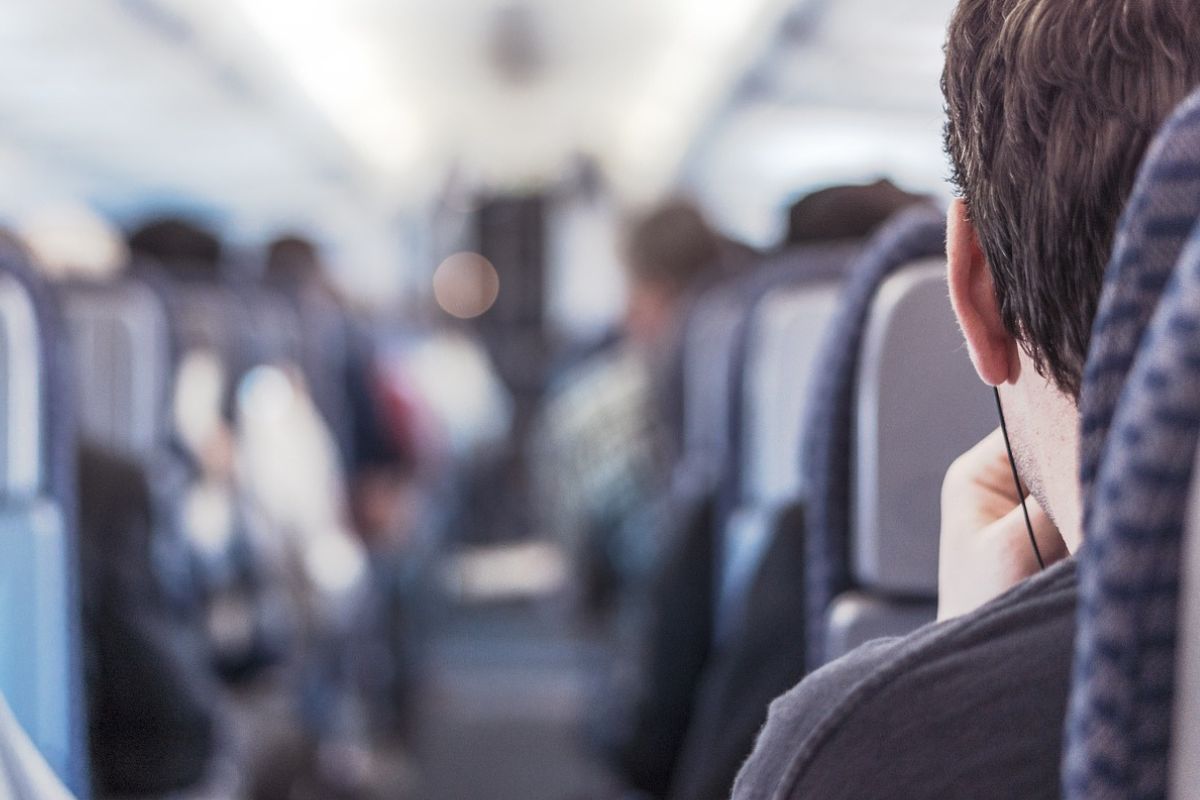Jet lag can be a real challenge for frequent business travelers, resulting in physical and psychological fatigue and disrupting productivity, and can cause tension at home.
As a high-performance coach working with top athletes and executives, I’ve developed science-based strategies to help overcome jet lag. And having traveled extensively for my work, I understand the toll it can take on your body and mind.
Beating jet lag requires a comprehensive approach that prioritizes sleep, light exposure, hydration, regular meals and a positive mindset.
Here are my top five tips to help you beat jet lag like a pro.
1. Prioritize Sleep and Recovery

Sleep is the key to combating jet lag effectively. Aim for quality sleep each night you are on the road (for the majority of people, this varies between six-and-a-half and seven hours each night). To enhance relaxation and stimulate the parasympathetic nervous system, engage in activities like gentle stretching, deep breathing, meditation, mindfulness or listening to relaxing music.
Stick to local time zones and aim to wake at your normal time. By day three or four on the road, you may experience fatigue catching up with you. Squeezing in a 20–30 minute power nap or a full sleep cycle of 90 minutes will help you to freshen up and re-adjust. Avoid napping after 3pm if you plan to sleep by 10pm. In some cases, melatonin supplements can be beneficial for regulating sleep and alleviating jet lag symptoms.
2. Get Natural Light Exposure
Exposure to natural light and synchronizing your body and brain with the local time is crucial for resetting your circadian rhythm. Seek out natural light as early as possible after waking up and spend 20–30 minutes outdoors, whether it’s going for a walk or simply sitting outside. This helps adjust to the new time zone and promotes better sleep.
To prepare for sleep, reduce exposure to bright lights 60 minutes before bedtime and limit or avoid screen time. If you do need to work or read papers for the following day, activate night mode and consider using blue light-blocking glasses. Blue wavelength light emitted by electronic devices disrupts natural rhythms and confuses your circadian clock.
3. Stay Hydrated

Dehydration poses a significant challenge when traveling, as cabin pressure and air conditioning can deplete your body’s water levels even further. Make a conscious effort to stay hydrated and as a general rule aim to drink 300–500 milliliters of water (the bigger you are, the more water you need) every 60–90 minutes when flying.
And sorry to be the bearer of bad news, but eliminating alcohol or reducing to only one or two small serves makes a big difference to recovery and being able to concentrate/focus the following day.
4. Eat Regular Meals
Maintaining regular mealtimes helps to manage jet lag. Aim to eat your meals at consistent times each day to stabilize your blood sugar levels and prevent excessive tiredness. However, be mindful of overeating. Just because the business lounge or in-flight menu offers you unlimited servings of your favorite meals doesn’t mean you have to indulge excessively.
Select smaller, healthier meals. Protein-rich foods promote alertness due to their dopamine and tyrosine content, while carbohydrates can increase drowsiness as they contain tryptophan, a precursor to serotonin.
5. Practice Patience and Gratitude
Adjusting to a new time zone can take a few days, so be patient with yourself. Don’t expect to feel 100 percent after just one night’s sleep.
Additionally, maintaining perspective and gratitude can go a long way in managing jet lag. Remember the incredible opportunities that travel brings to your job. While it may not be at the top of your priority list, reflecting on the wonderful places you’ve visited and the amazing people you’ve met can help you appreciate the unique experiences that come with frequent travel.
Beating jet lag requires a comprehensive approach that prioritizes sleep, light exposure, hydration, regular meals and a positive mindset. By following these strategies, you can minimize the impact of jet lag and make the most out of your travels. Bon voyage!
Andrew May is host of the Performance Intelligence Podcast and founder and CEO of StriveStronger.com, a wellbeing consultancy and is on a mission to wake people up to a better way of living, working, and leading. Find out more at www.andrewmay.com.







